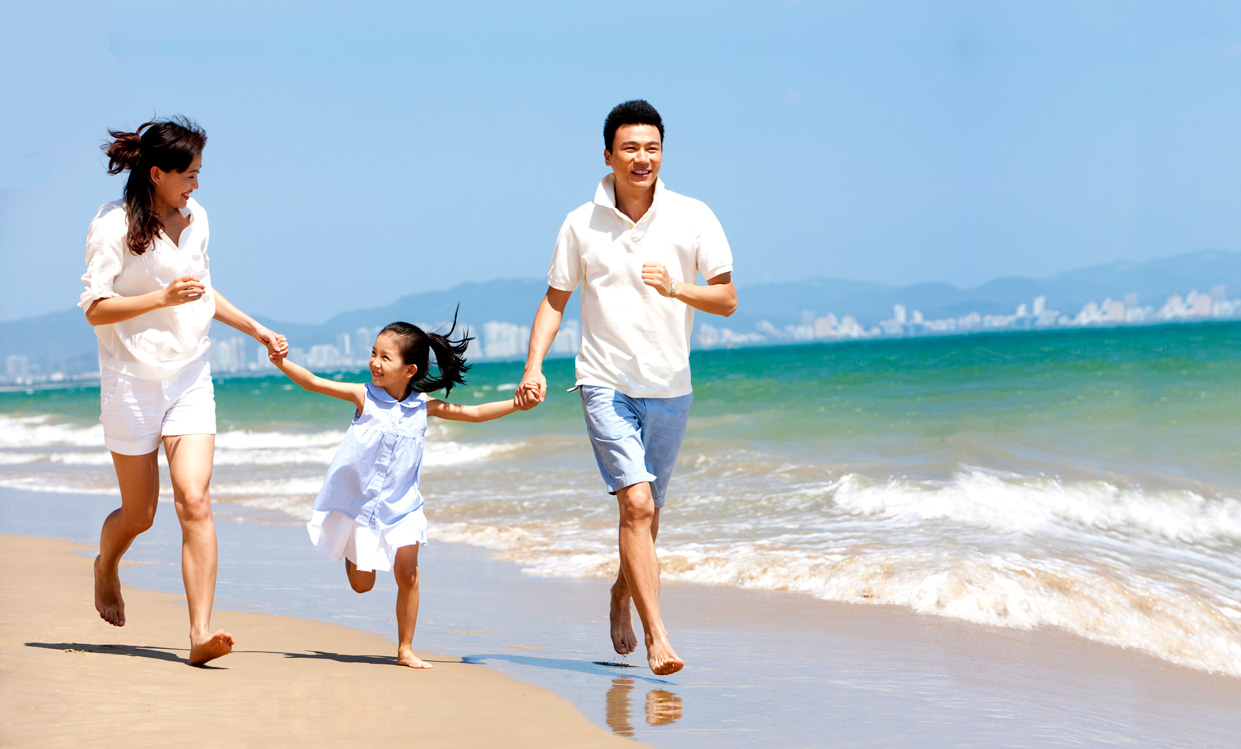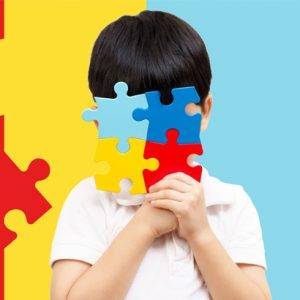Many developed countries today are experiencing rapidly decreasing fertility rates, and it is not because the new generation is less romantic. At least, this is not the sole contributing factor. As women continue to take a more active role in the workforce by dedicating more time to their careers, many couples only begin to think of starting a family in their later years. The benefits of this are increased maturity and financial stability as parents, but unfortunately older age often correlates with complications with fertility. Malaysia’s own fertility demographics are very interesting because fertility rates appear to vary significantly between races. In December 2015, the Department of Statistics Malaysia released Vital Statistics Malaysia 2014, a document containing information on births and deaths across a variety of demographic indicators.’
The analysis showed that the total fertility rate of the nation was below the replacement level; unchanged at 2.0 per woman aged 15–49 from 2013 to 2014. The fertility rates declined for Indians and other races, while Chinese and Bumiputera were unchanged at 1.4 and 2.6 in the same period. In 2014, the fertility rate for Bumiputera was 2.6 per woman aged 15–49 years, which was above the replacement level. By contrast, the rates for both Chinese and Indians were below the replacement level at 1.4 respectively, and Others at 0.9 per woman aged 15–49 years. 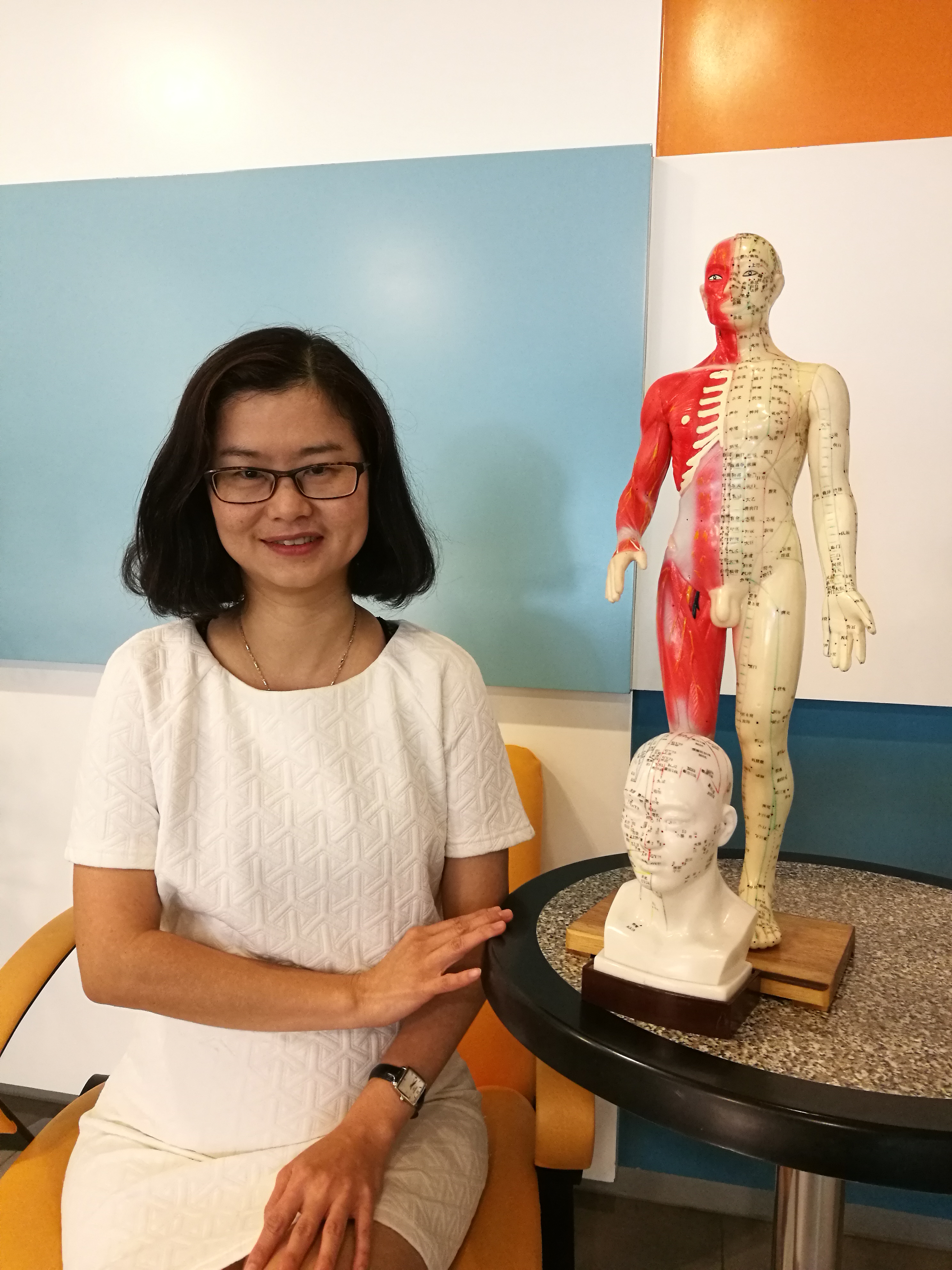 As the number of fertility clinics show, it could be presumed that many more couples are faced with challenges when trying to conceive. While many pin their hopes on science, and pursue allopathic options, there are also those who opt for a more traditional way of upping the chances of a successful pregnancy. Many of these couples turn to Chinese Medicine, and physicians like Dr Liow Sook Mee, a registered Chinese Medicine practitioner at IMU Healthcare. Dr Liow received her Bachelor in Traditional Chinese Medicine from Guangzhou University, China. Her postgraduate degrees were obtained from Shan Dong University of Traditional Chinese Medicine, China. Having spent the last 16 years specialising in the fields of gynaecology, neurology, acupuncture and internal medicine, she is one of the foremost experts in the field of fertility and Chinese Medicine. While many people consider Chinese Medicine somewhat esoteric, the efficacy of its treatments have been proven time after time. When it comes to fertility, Dr Liow says that it is all about the ‘inner essence’ of a person. This is how Chinese Medicine refers to genetics. “Chinese Medicine believes that a woman is born with a set number of eggs, although the eggs are not all equal in size, maturity or constitution. It is also believed that the ‘inner essence’ is stored in the kidney. Blood circulation and hormonal changes affects the yin-yang balance, which is demonstrated by the thickening of the lining of the uterus. Infertility is understood to be a problem of the immune system and when coupled with weak ‘inner essence’, it can result in the inability to conceive,” she outlines.
As the number of fertility clinics show, it could be presumed that many more couples are faced with challenges when trying to conceive. While many pin their hopes on science, and pursue allopathic options, there are also those who opt for a more traditional way of upping the chances of a successful pregnancy. Many of these couples turn to Chinese Medicine, and physicians like Dr Liow Sook Mee, a registered Chinese Medicine practitioner at IMU Healthcare. Dr Liow received her Bachelor in Traditional Chinese Medicine from Guangzhou University, China. Her postgraduate degrees were obtained from Shan Dong University of Traditional Chinese Medicine, China. Having spent the last 16 years specialising in the fields of gynaecology, neurology, acupuncture and internal medicine, she is one of the foremost experts in the field of fertility and Chinese Medicine. While many people consider Chinese Medicine somewhat esoteric, the efficacy of its treatments have been proven time after time. When it comes to fertility, Dr Liow says that it is all about the ‘inner essence’ of a person. This is how Chinese Medicine refers to genetics. “Chinese Medicine believes that a woman is born with a set number of eggs, although the eggs are not all equal in size, maturity or constitution. It is also believed that the ‘inner essence’ is stored in the kidney. Blood circulation and hormonal changes affects the yin-yang balance, which is demonstrated by the thickening of the lining of the uterus. Infertility is understood to be a problem of the immune system and when coupled with weak ‘inner essence’, it can result in the inability to conceive,” she outlines. 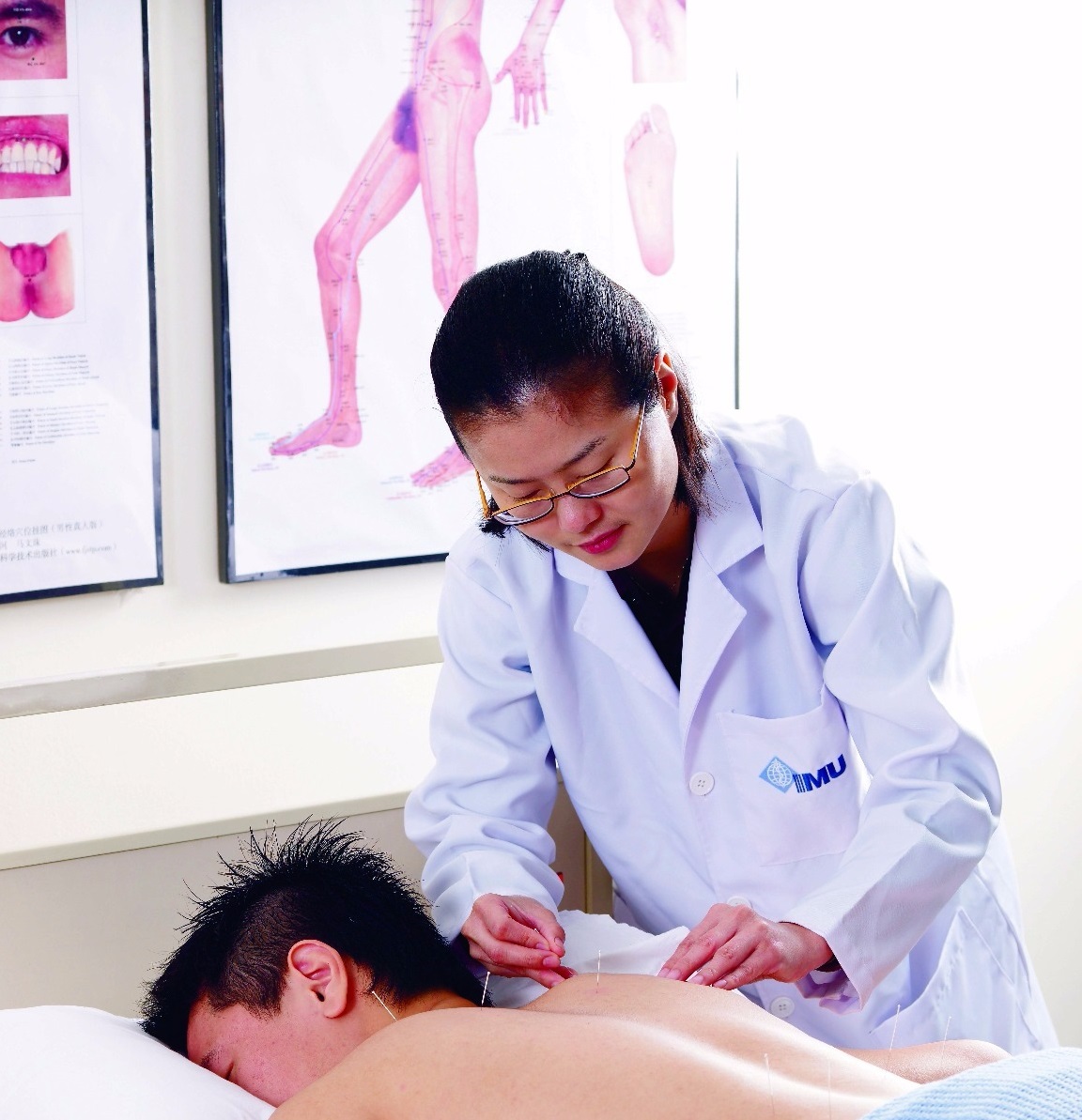 Although most women are born fertile, external factors like stress, previous abortions, problems with weight loss and overdoing heavy exercises may lead to infertility. When Dr Liow treats patients, she first starts on a woman’s menstrual cycle. “For good quality eggs, a woman will need a normal cycle of 28-35 days. However, some of my patients have a cycle of only 21 days. Yet others have 60-day cycles. Therefore the first thing I do is to ensure the yin-yang balance in order to ensure that the kidneys, blood and qi of the person are strong enough to conceive a child,” explains Dr Liow. Men are not sidelined in the mission to conceive. While working to normalise the female partner’s yin-yang balance, Dr Liow may request the male partner to do a sperm count test and if needed, would then put him on a regime to help increase the count. She also investigates the husband’s kidney function and regulates his diet. “Cold drinks and greasy food make sperm slow, so we will have to relook at a man’s diet if he eats poorly. The diet may also include herbs. Acupuncture may sometimes be used too, if necessary,” says Dr Liow. Other prohibitions to the male partner include no beer, no green tea and only black tea. Women too will need to eliminate cool foods like watermelon if they have heavy vaginal discharge. “Both parties should not overdo exercise – two to three days at the gym is enough, they should also not overwork and limit stress.”
Although most women are born fertile, external factors like stress, previous abortions, problems with weight loss and overdoing heavy exercises may lead to infertility. When Dr Liow treats patients, she first starts on a woman’s menstrual cycle. “For good quality eggs, a woman will need a normal cycle of 28-35 days. However, some of my patients have a cycle of only 21 days. Yet others have 60-day cycles. Therefore the first thing I do is to ensure the yin-yang balance in order to ensure that the kidneys, blood and qi of the person are strong enough to conceive a child,” explains Dr Liow. Men are not sidelined in the mission to conceive. While working to normalise the female partner’s yin-yang balance, Dr Liow may request the male partner to do a sperm count test and if needed, would then put him on a regime to help increase the count. She also investigates the husband’s kidney function and regulates his diet. “Cold drinks and greasy food make sperm slow, so we will have to relook at a man’s diet if he eats poorly. The diet may also include herbs. Acupuncture may sometimes be used too, if necessary,” says Dr Liow. Other prohibitions to the male partner include no beer, no green tea and only black tea. Women too will need to eliminate cool foods like watermelon if they have heavy vaginal discharge. “Both parties should not overdo exercise – two to three days at the gym is enough, they should also not overwork and limit stress.”
“It takes two healthy partners to make a baby, so fertility treatment is always done for both husband and wife, although different couples may have different problems. It becomes more difficult when the couple is not together all the time, as in cases when one partner works overseas or out-of-state. This is when we need to count the days on the ovulation chart for best chances of success,”
 How long does it take before couples are successful? In Dr Liow’s experience, one month has been the quickest. Other couples may need up to a year, particularly if the wife is past 40. However, Dr Liow exultantly shares a case where a 40-over lady needed over a year of treatment before conceiving, but managed to have two children in succession after her Chinese Medicine treatment.
How long does it take before couples are successful? In Dr Liow’s experience, one month has been the quickest. Other couples may need up to a year, particularly if the wife is past 40. However, Dr Liow exultantly shares a case where a 40-over lady needed over a year of treatment before conceiving, but managed to have two children in succession after her Chinese Medicine treatment. 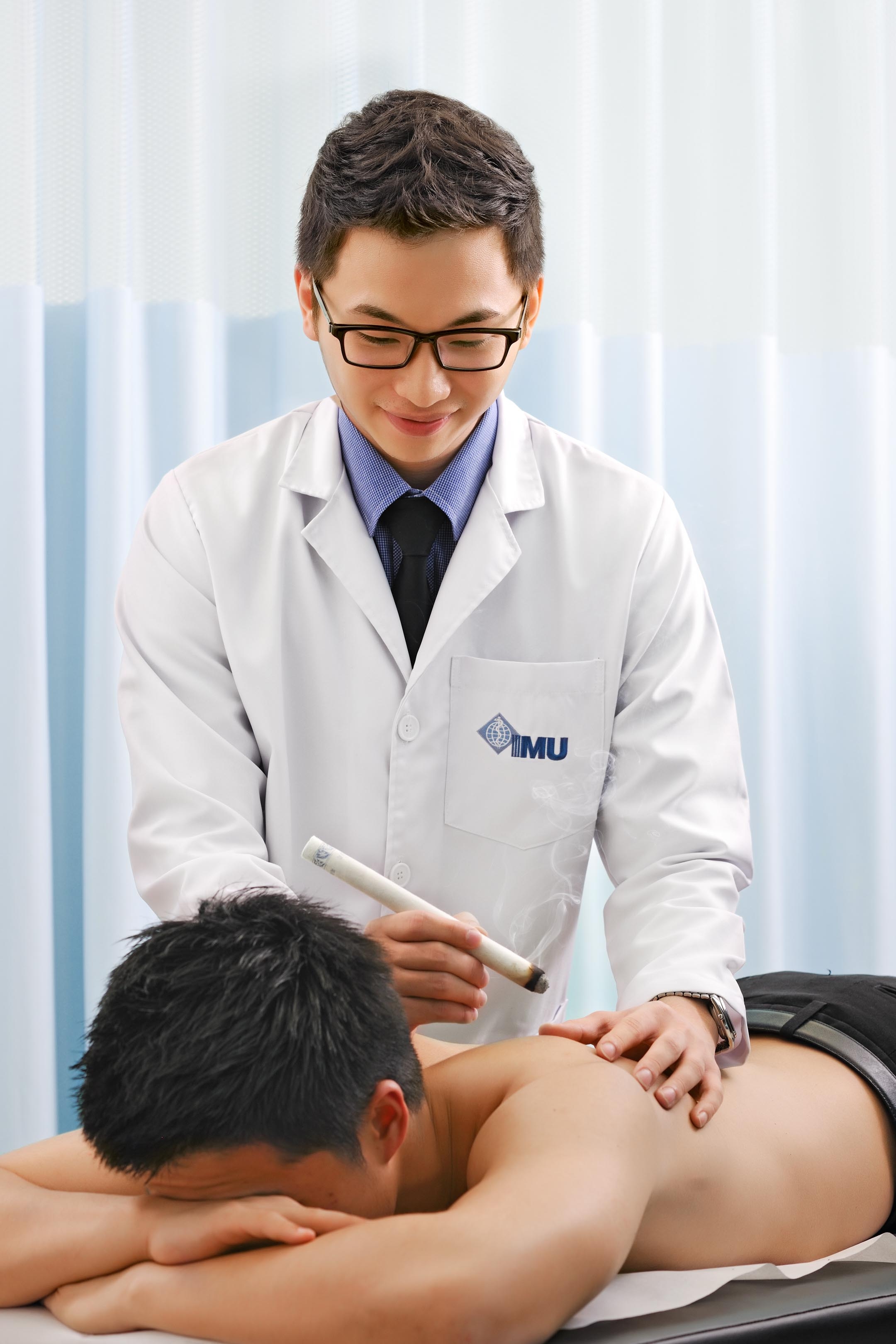 There is also an increasing confluence between Western and Chinese Medicine, with Dr Liow treating patients who are undergoing IVF treatment. In cases like these, she avoids using herbs, but changes her treatment modality to the use of acupuncture to help regulate and balance the woman. When asked if acupuncture worked faster than herbs, Dr Liow said, “Herbs are needed when there is a deficiency in the blood, and it needs more nourishment. If the underlying cause is stress or lack of qi, then acupuncture is used. Eighty percent of my patients conceive just by the use of herbs,” she announces. “I am very happy to work with a woman’s gynaecologist in order to time a woman’s ovulation periods, for best outcomes,” she added. But aren’t Chinese herbs notoriously hard to swallow? The doctor smiles and agrees, but says, “You get used to it. Honey helps.” Another way she helps bring her client’s to optimum health is by moxibustion. “Moxibustion is a treatment for a ‘cold uterus’. It uses a herb called Artemesia Vulgaris which helps warm the body and prepare it to nourish new life.” Dr Liow continues to treat a woman after she manages to conceive. This is because if there was already an incidence of infertility, it would mean that there would be other hormonal imbalances which would need taking care of in pregnancy. “Some women may need herbs to strengthen the uterus, others may not. I monitor them all for any sign of deficiency and will treat patients accordingly.” This article is brought to you by IMU Healthcare.
There is also an increasing confluence between Western and Chinese Medicine, with Dr Liow treating patients who are undergoing IVF treatment. In cases like these, she avoids using herbs, but changes her treatment modality to the use of acupuncture to help regulate and balance the woman. When asked if acupuncture worked faster than herbs, Dr Liow said, “Herbs are needed when there is a deficiency in the blood, and it needs more nourishment. If the underlying cause is stress or lack of qi, then acupuncture is used. Eighty percent of my patients conceive just by the use of herbs,” she announces. “I am very happy to work with a woman’s gynaecologist in order to time a woman’s ovulation periods, for best outcomes,” she added. But aren’t Chinese herbs notoriously hard to swallow? The doctor smiles and agrees, but says, “You get used to it. Honey helps.” Another way she helps bring her client’s to optimum health is by moxibustion. “Moxibustion is a treatment for a ‘cold uterus’. It uses a herb called Artemesia Vulgaris which helps warm the body and prepare it to nourish new life.” Dr Liow continues to treat a woman after she manages to conceive. This is because if there was already an incidence of infertility, it would mean that there would be other hormonal imbalances which would need taking care of in pregnancy. “Some women may need herbs to strengthen the uterus, others may not. I monitor them all for any sign of deficiency and will treat patients accordingly.” This article is brought to you by IMU Healthcare.





